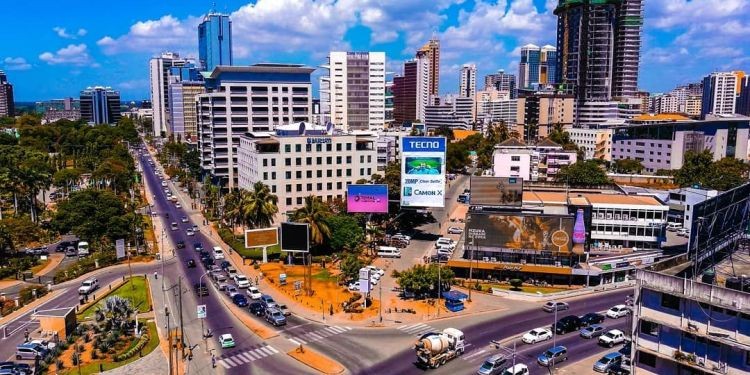
Tanzania is likely to emerge in the coming months as the fastest growing economy in Africa in 2020.
This projection is based on data collected by Citi Researchers for Q3, 2020 which puts Tanzania’s Gross Domestic Product (GDP) growth at 4.8% in 2020.
“In part, this reflects that the country has had no significant national lockdown robust agricultural sector growth. Meanwhile, the government has not published COVID-19 data since May 2020 largely on the grounds that the pandemic had been defeated in the country,” said Citi in its recent Africa Economics and Strategy Weekly.
“While public debate on COVID-19 seems to have ended, in late January 2021, the World Health Organization (WHO) formally encouraged the Tanzanian government to prepare for the vaccine and put preventative measures to protect their population. Dar es salaam was also requested to share data on the COVID-19 situation with WHO and neighbouring countries”. the report notes.
Tanzania’s COVID-19 record
Whatever the actual state of affairs, Citi says the reality in Tanzania seems to be that the hospitals have not been overwhelmed by COVID-19 cases.
However, lower tourist arrivals and lockdowns in the regional trading partners still mean that growth even slowed marginally in 2020.
Notably, growth in the accommodation and restaurants sub-sector of GDP did collapse significantly in 2020.
But sectors that were heavily impacted by national lockdowns in other African countries, such as construction or retail and wholesale trade, were only modestly affected in Tanzania.
In contrast to Ethiopia and Tanzania and except Egypt, Citi Research analysts say North African and Southern African economies have seen some of the sharpest contractions in real GDP in 2020.
Morocco was the first African country to publish full 2020 national accounts data, which shows that GDP contracted by 7%.
This is very similar to Citi’s current forecast for a contraction of 7.2% in the South African economy in 2020.
The contraction in GDP for the smaller open economies in Northern and Southern Africa, such as Botswana and Tunisia, is likely to be marginally above these contractions.
But the most severe contractions are still likely to be in the small tourist-dependent island economies. Data for Q1-Q3 2020 for Mauritius indicate that real GDP is expected to contract somewhere in the region of 13-15% in 2020.
While the final Q4 data may change, Citi maintains that it will only be marginally.
Citi Research said it now broadly knows what happened to growth across Africa in 2020.
But while the growth outturn has varied significantly across Africa, it notes that there has been a significant rise in poverty levels across Africa, impacting the likely recovery in 2021.
Moreover, given the rise in fiscal deficits and debt levels in 2020, the recovery in growth will have to play out against some fiscal consolidation background.
Exactly how this will play out is still not entirely clear to us, but Citi thinks that developments in Kenya have the potential to provide some interesting insights.
Eastern Africa
Citi points out that the most exciting variations in 2020 growth outturns have occurred in Eastern Africa throughout 2020.
Uganda and Rwanda economies are likely to have had small contractions in real GDP in 2020.
For Kenya, the IMF has recently revised its forecast for Kenyan real GDP in 2020 to -0.1% from 1%.
This would imply that real growth in Q4 was around 1.5% and means that Kenya’s growth outturn in 2020 is broadly the same as for Rwanda and Uganda.
However, Citi maintains that Kenya’s growth in Q4 will be marginally higher, giving a small positive growth outcome or around 0.5%, so a little bit lower than Cote d’Ivoire and Ghana, but still a tiny positive growth number.
In stark contrast to the more muted growth outcomes in Kenya, Rwanda and Uganda, and the sharp fall in real GDP in Burundi, the region also included some of the fastest-growing economies in Africa in 2020, Ethiopia and Tanzania.
Data for the fiscal year up to July 7, 2020, shows that Ethiopia’s growth slowed from 8.4% in 2019 to 6.1% in 2020, but this is still a significant positive number.
Since then, however, the country has seen a significant domestic conflict, which, although contained in a limited geographical area, notably the province of Tigray, is likely to have undermined business confidence and led to a sharp growth slowdown in 2H 2020.
The IMF currently forecasts that growth was 1.9% in 2020 and will slow to zero in 2021 on the back of the conflict and the rising political uncertainty around the planned elections.
Source: Kenyanwallstreet.com
 Africa -China Review Africa -China Cooperation and Transformation
Africa -China Review Africa -China Cooperation and Transformation
